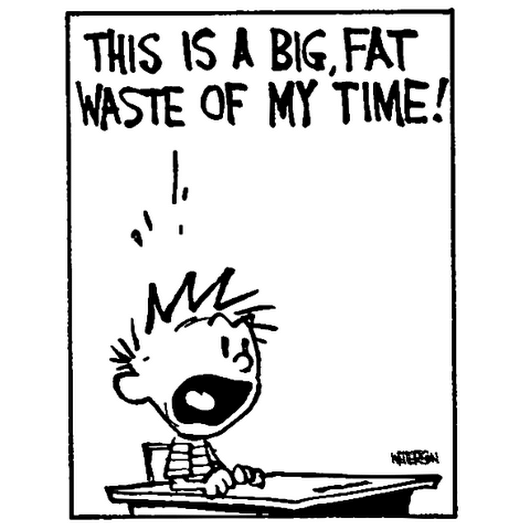
Unfortunately, it’s all too easy to waste valuable meeting time.
Ask attendees why they go to meetings and their top two responses are to learn and connect. Remember kids that ask a question, and when you answer it they say “why?”
“Why can’t we go outside?”
“Because it’s raining.”
“Why?”
“Well, water’s coming out of the sky.”
“Why?”
So be that annoying kid for a moment and ask: “Why do you want to learn and connect?”
If you play enough rounds of the why game, and ignore the unprofessional but possibly truthful answers — for example: “I’m hoping to get to know an attractive colleague better”; “My boss said I had to and I need a pay raise”; “It’s been too long since I ate fresh Maine lobster” — you will find that the core motivation to go to meetings is to change in some useful way. Change how you see things, and, most important, change how you do things: i.e. behavior change.
The dubious value of public speaking
So now we’ve got that out of the way, let’s review what Harold Jarche, a veteran educator in the Canadian Armed Forces and now a leading consultant on workplace learning, has to say about the value of public speaking [emphasis added]:
“I do a fair bit of public speaking. But I doubt that much of it has changed anyone’s behaviour. I may have presented some new ideas and sparked some thinking. With a one-hour lecture, you cannot expect more. Yet a lot of our training programs consist of an expert presenting to ‘learners’. Do we really expect behaviour change from this? That would be rather wishful thinking. Learning is a process, not an event.”
“To learn a skill or get better at one you have to practice. Deliberate practice with constructive feedback is the key for long-term success.“
“I conduct face-to-face workshops as well as online ones. For my on-site sessions, usually 1/2 or a full day, I try to cover the basics and the key concepts. We do a few exercises to get people thinking differently. But I don’t expect significant changes in performance as a result of one day together.”
—Harold Jarche, no time, no learning
Like Harold, after years of running meetings and workshops I’ve learned that the likelihood creating permanent valuable behavior change increases as a power of the time spent together. By “together” I don’t mean listening passively to an expert talk. I mean working together as a group to learn new skills and approaches and ways of thinking and practicing with constructive group and expert feedback.
We’ve all heard we should be doing these things to maximize the value of our valuable time together. But very, very few of today’s meetings involve even a smattering of facilitated deliberate practice with constructive feedback.
When you think of all the expensive time we continue to waste doing things we’ve been doing for hundreds of years which we now know don’t work — well, I think tragedy is an accurate description of what routinely passes as a “meeting”.
Change is hard. We now know that social production is the way to maximize learning that leads to significant, valuable, long-term change. At meetings, the instantiations of social production are facilitated workshops run by and/or with content experts. That’s what we should be doing.
Not lectures from experts. Don’t waste valuable meeting time doing that!
